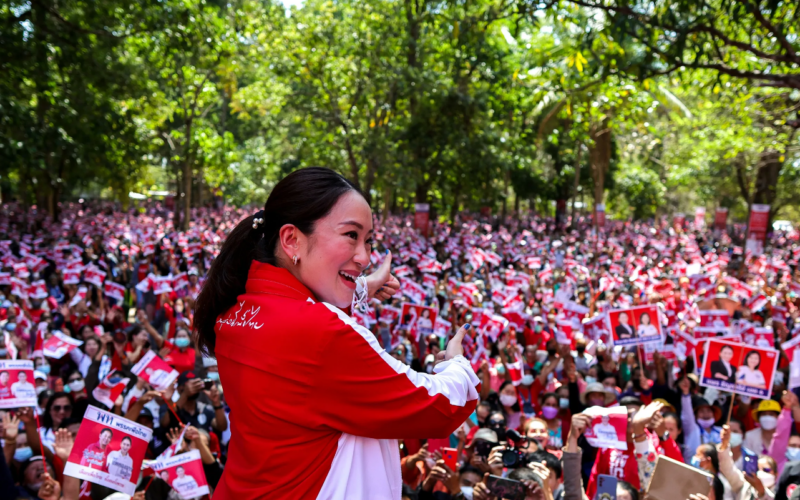Paetongtarn Shinawatra, the daughter of former Prime Minister Thaksin Shinawatra, has made history by becoming Thailand’s youngest prime minister. Her rapid ascent to the country’s highest political office comes in the wake of a tumultuous period for Thai politics, marked by the sudden ousting of her predecessor, Srettha Thavisin, just last week. This dramatic turn of events has captivated the nation and brought renewed attention to the Shinawatra political dynasty.
At just 37 years old, Paetongtarn Shinawatra’s rise to power is nothing short of remarkable. Although she hails from one of Thailand’s most prominent political families, her path to the premiership was far from guaranteed. Paetongtarn’s father, Thaksin Shinawatra, served as prime minister from 2001 to 2006 before being ousted in a military coup. Her aunt, Yingluck Shinawatra, also served as prime minister from 2011 to 2014, only to be removed from office by a court ruling. Given this family history, Paetongtarn has long been a figure of both fascination and controversy in Thai politics.
Despite the shadow of her family’s complex political legacy, Paetongtarn emerged as a formidable candidate. Her political career began in earnest when she was appointed as the head of the Pheu Thai Party’s strategy committee in 2022. This role allowed her to shape the party’s direction and build a strong political network. Known for her sharp political acumen and ability to connect with younger voters, she quickly rose through the ranks, positioning herself as a future leader.
Paetongtarn’s rise was catalyzed by the unexpected downfall of her predecessor, Srettha Thavisin. Thavisin, who was selected as prime minister just months earlier, faced growing scrutiny and legal challenges from opposition parties and political activists. The controversy centered around alleged conflicts of interest and accusations that Thavisin had violated electoral laws during his campaign.
These allegations eventually led to a ruling by Thailand’s Constitutional Court, which determined that Thavisin had engaged in actions that disqualified him from holding office. The court’s decision, while controversial, was final, leading to Thavisin’s removal from the premiership. This unexpected vacancy at the top of Thai politics set the stage for Paetongtarn’s historic rise.
With Thavisin out of the picture, the Pheu Thai Party moved quickly to nominate a new candidate for the prime ministership. Paetongtarn, who had been a key advisor to Thavisin and was already seen as the de facto leader of the party, was the natural choice. Her selection as the party’s candidate was unanimous, reflecting her strong support within the party and among its voter base.
Paetongtarn’s nomination was met with mixed reactions. Supporters hailed her as a fresh and dynamic leader who could bring much-needed change to Thailand’s political landscape. They point to her modern approach to governance, her focus on digital innovation, and her commitment to addressing the concerns of younger Thais. Critics, however, argue that her rise represents a continuation of the Shinawatra family’s grip on power, which has long been a source of division in Thai politics.
As Paetongtarn assumes office, she faces a daunting array of challenges. Thailand is grappling with economic difficulties, including rising inflation, unemployment, and the lingering effects of the COVID-19 pandemic. In addition to these economic issues, Paetongtarn must navigate a deeply polarized political landscape, where the Shinawatra name is both a powerful asset and a lightning rod for opposition.








